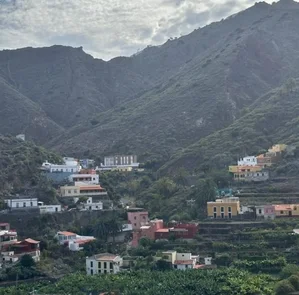Cantabria Ends the Year with No Progress on Demolitions and Flood Relief

As the year 2024 draws to a close, the autonomous community of Cantabria in northern Spain is reflecting on a year marked by significant challenges, particularly in the areas of demolition policies and flood relief, with little to no progress made.
Demolition Policies: A Year of Stagnation
The Association of Municipalities of Cantabria (AMA) has expressed deep disappointment that the year is concluding without any substantial changes to the region's demolition policies. Despite ongoing discussions and promises of reform, the current regulations remain unchanged, leaving many residents and local authorities frustrated.
AMA has been vocal about the need for more flexible and practical demolition policies, especially in light of the region's historical and architectural heritage. However, the lack of action from the regional government has meant that many buildings, some of which hold significant cultural value, continue to face the threat of demolition without adequate safeguards.
Flood Relief: Ongoing Struggles
In addition to the stalemate on demolition policies, Cantabria has also grappled with the aftermath of severe flooding that hit the region earlier in the year. Torrential rainstorms in December 2024 caused widespread flooding, affecting streets, farmland, and residential areas. The floods highlighted the region's vulnerability to extreme weather events and the need for more robust flood prevention and relief measures.
The regional government initiated search and rescue operations, including the deployment of helicopters, to assist those affected by the floods. However, the response has been criticized for being slow and inadequate, leaving many communities feeling neglected and unsupported.
Environmental and Economic Impacts
The flooding has not only caused immediate destruction but also long-term environmental and economic impacts. Farmers have reported significant losses due to the damage to farmland, which could affect the region's agricultural output in the coming year. Moreover, the floods have underscored the urgent need for sustainable and resilient infrastructure to mitigate the effects of climate change.
Renewable Energy Initiatives: A Glimmer of Hope
While the year has been marked by challenges, there is a glimmer of hope in the form of renewable energy initiatives. Nearby regions in Spain, such as Andalusia, have seen significant investments in solar energy. For instance, the town hall in one of Andalusia's towns has introduced a 50% reduction in property rate tax for residents who install solar panels, aiming to reduce energy consumption by 30% over the next three years.
Such initiatives highlight the potential for sustainable development and could serve as a model for Cantabria as it seeks to rebuild and strengthen its resilience against future environmental challenges.
As Cantabria looks to the new year, there is a clear call for action from both the regional government and local communities to address the pressing issues of demolition policies and flood relief. The hope is that 2025 will bring meaningful reforms and investments that will help the region recover and thrive.
Related Stories

Hermigua Municipality Initiates Public Housing Project with Land Acquisition
Hermigua on La Gomera announces a public tender for land to build public housing, aiming to meet the growing demand for affordable living spaces.

Canary Islands Grapple with Demographic and Migration Challenges: Local Solutions Proposed
Facing demographic and migration challenges, the Canary Islands propose measures to integrate migrants and address an aging population, amid a surge in arrivals.

Economic Ways to Heat Your Home This Winter: OCU's Guide for Expats in Spain
OCU shares three cost-effective heating methods for expats in Spain, including optimizing heating systems, using layered insulation, and smart heating schedules, to cut winter bills.

Hostelers in Cantabria Demand Regulation of Tourist Apartments, Campervan Areas, and Street Parties
Hostelers in Cantabria call for regulation of tourist apartments, campervan areas, and street parties to combat unfair competition and ensure a level playing field in the hospitality industry.

New Housing Development Approved in Puerto Naos, La Palma
La Palma's Cabildo approves 21 new homes in Puerto Naos, aiming to boost local housing, economy, and tourism while preserving natural beauty.